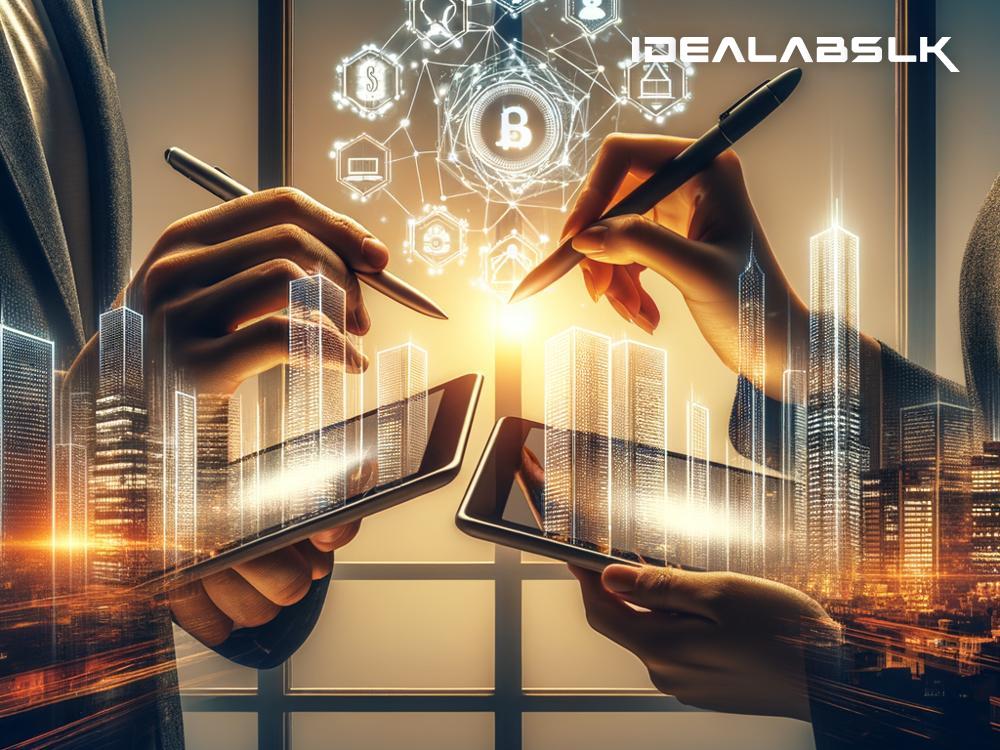Simplifying Lease Agreements in Real Estate with Blockchain: A Future-Forward Approach
The real estate world is vast, with countless transactions and documents floating around at any given moment. From signing lease agreements to managing property records, the process can often be lengthy, complex, and riddled with inefficiencies. Enter blockchain technology and its brainchild, smart contracts: a duo that's paving the way for a more streamlined, secure, and efficient real estate sector. But before we dive into how blockchain is revolutionizing lease agreements, let's break down these concepts into bite-sized pieces.
What is Blockchain?
Imagine a digital ledger that's accessible to multiple people at the same time, but no single person can tamper with it. That's blockchain for you. This technology records information in a way that makes it nearly impossible to change, hack, or cheat the system. Each piece of data is stored in a 'block,' and each block is connected to the ones before and after it, creating a chain of blocks – hence the name, blockchain.
The Magic of Smart Contracts
Smart contracts run on the blockchain. They are like traditional contracts, but with a twist: they're executed automatically when certain conditions are met, without the need for middlemen. Think of it as a vending machine. You select a snack (the agreement), insert your money (the trigger), and the machine automatically releases your choice. If the conditions aren't met, the contract won't execute. Simple, right?
Revolutionizing Real Estate Lease Agreements
Real estate transactions, especially lease agreements, are ripe for a blockchain makeover. Here's how blockchain and smart contracts are playing a significant role:
1. Speed and Efficiency
The traditional way of signing lease agreements often involves a lot of paperwork and several parties, including agents, lawyers, and banks. It's not just time-consuming but can also be expensive. Blockchain simplifies this process. With smart contracts, lease agreements can be executed digitally and automatically, cutting down the time and cost significantly.
2. Security and Transparency
Blockchain's nature of being immutable and transparent means once a lease agreement is entered into the blockchain, it cannot be altered or deleted. This ensures a high level of security and trust among parties. Everyone involved can have real-time access to the transaction, ensuring transparency and reducing the chances of disputes.
3. Automation of Payments
Rent payments can be automated using smart contracts, minimizing the chances of late payments. The contract can be set up to transfer funds from the tenant's digital wallet to the landlord's account automatically on a specified date. If a tenant fails to fund their digital wallet, the contract can automatically notify both parties, streamline communication, and potentially initiate procedures outlined in the agreement for such situations.
4. Digital Identity and Record Keeping
Blockchain can securely store information such as property records and tenants' identities, reducing the likelihood of fraud. Each transaction is recorded, creating a comprehensive and indisputable history of the property. This digital trail can assist in background checks, ensuring that the tenants and landlords have a reliable transaction history.
Overcoming Challenges
While the potential for blockchain in real estate is immense, there are still hurdles to overcome. Adoption rates vary, and for widespread implementation, both tenants and landlords must be on board with using digital wallets and understanding the basics of blockchain and smart contracts. Moreover, regulatory frameworks need to evolve to accommodate and support these digital transactions fully.
The Future is Here
Imagine a world where signing a lease agreement is as easy as a few clicks, where the entire process from agreement to payment is automated, secure, and transparent. That's the future blockchain is promising for the real estate sector. While we're not quite there yet, the wheels are in motion, and the potential benefits are too significant to ignore.
As blockchain continues to develop, its integration into real estate could redefine how we think about leasing, making it more accessible, efficient, and transparent for everyone involved. The era of smart contracts in real estate is just around the corner, promising to streamline lease agreements in ways we've only just begun to explore.

